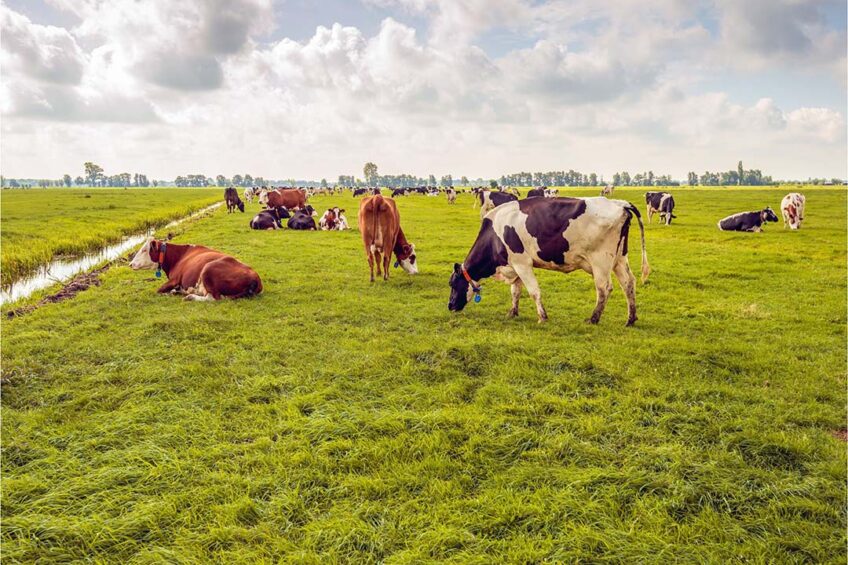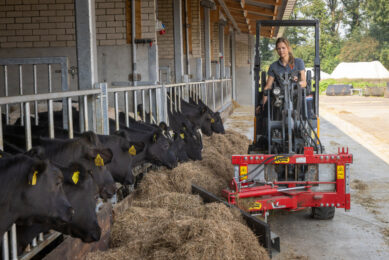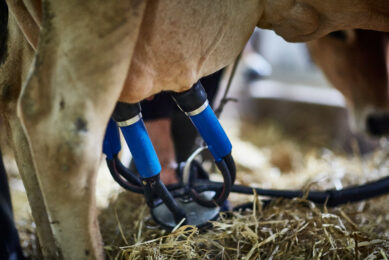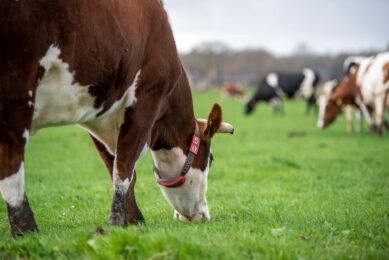UK gov support: Monitoring methane in individual cows

Installation of new equipment that allows methane output from individual dairy cows to be accurately measured has attracted government support as part of a drive to reduce greenhouse gas emissions in UK agriculture.
The £364,000 grant from the Biotechnology and Biological Sciences Council (BBSRC) has been used to purchase 4 GreenFeed units, which are currently installed and being used at the Harper Adams University Future Dairy Unit. The equipment measures the output of methane when the cows are both housed or grazing.
Professor Liam Sinclair, director of the Animal Science Research Centre at Harper Adams, said methane was naturally produced by the fermentation of feed in the rumen and represents around an 8% loss of energy from the diet. “Reducing methane production and diverting this energy into milk or meat will improve feed use efficiency and therefore increase dairy farmers margins and profitability,” he said.
Some dietary methods of additives to reduce methane also alter the pattern of fermentation in the rumen, which can reduce the incidence of metabolic diseases such as ketosis and fatty liver syndrome in dairy cows.
“These are important diseases, but also act as gateway diseases that can lead to other health issues. Reducing their incidence will improve dairy cow health and longevity,” added Sinclair.
Methane is also a potent greenhouse gas, although it doesn’t stay in the atmosphere for as long as carbon dioxide, but the academic said it was important that any product marketed to farmers had been independently and rigorously assessed to ensure that it was effective.
“Our GreenFeed units allow us to undertake robust and practical research that can be used by farmers to ensure that a product that they may wish to use on their farm has data to demonstrate its effect on methane production, is safe and ultimately cost-effective,” he said.
Data generated through the units can also be used to select cows and bulls that naturally produce less methane and to allow other methods and proxies to be developed that can more easily be used to measure methane production on farm.
Bolus in cow rumen
The units are currently being used by PhD student Charlotte Roxborough, who is investigating the effect of essential oils when supplied in the feed or via a slow release bolus in the cow’s rumen.
Roxborough said: “Most additives to reduce methane production in cattle have to be included in the diet or fed as supplements. This is great when the cows are housed, but there is a large number of cattle that are grazed and do not receive any supplementation. Providing an effective product in a slow release bolus will therefore allow methane production to be reduced in grazing animals as well as when housed.”
Join 13,000+ subscribers
Subscribe to our newsletter to stay updated about all the need-to-know content in the dairy sector, two times a week.










